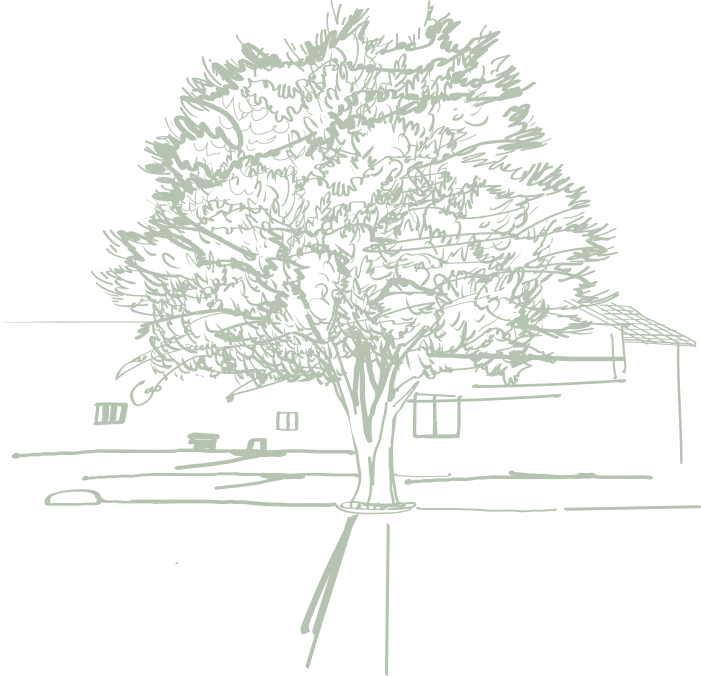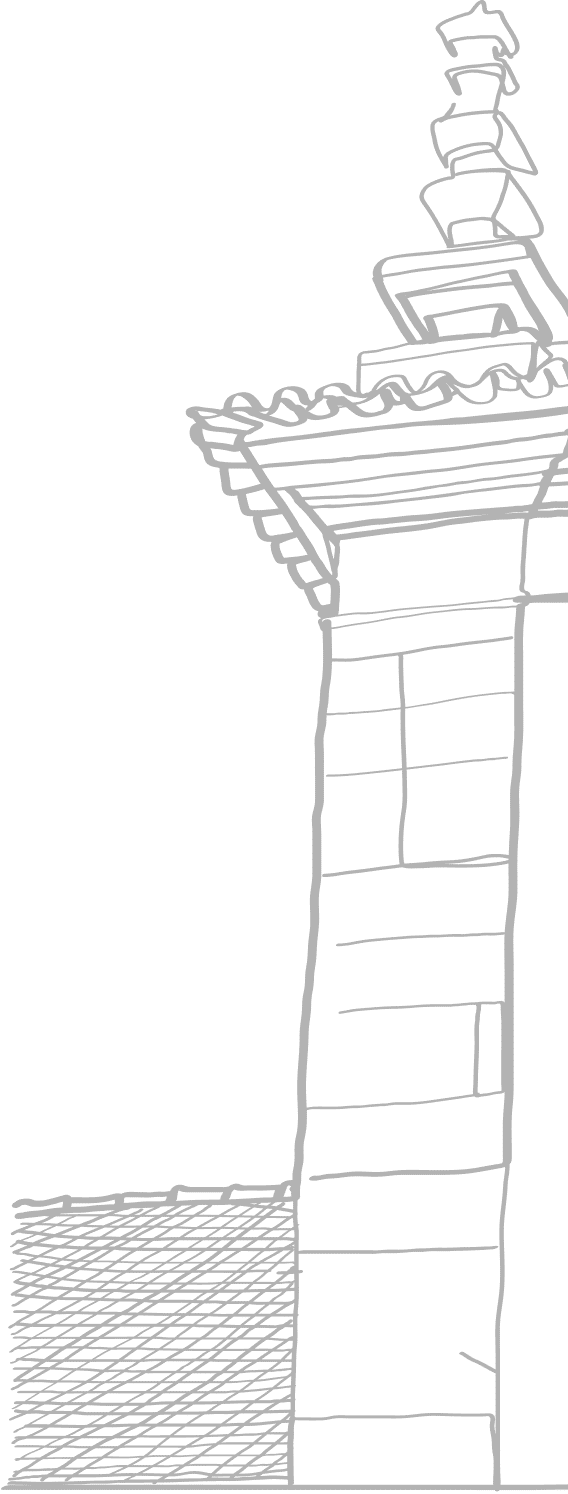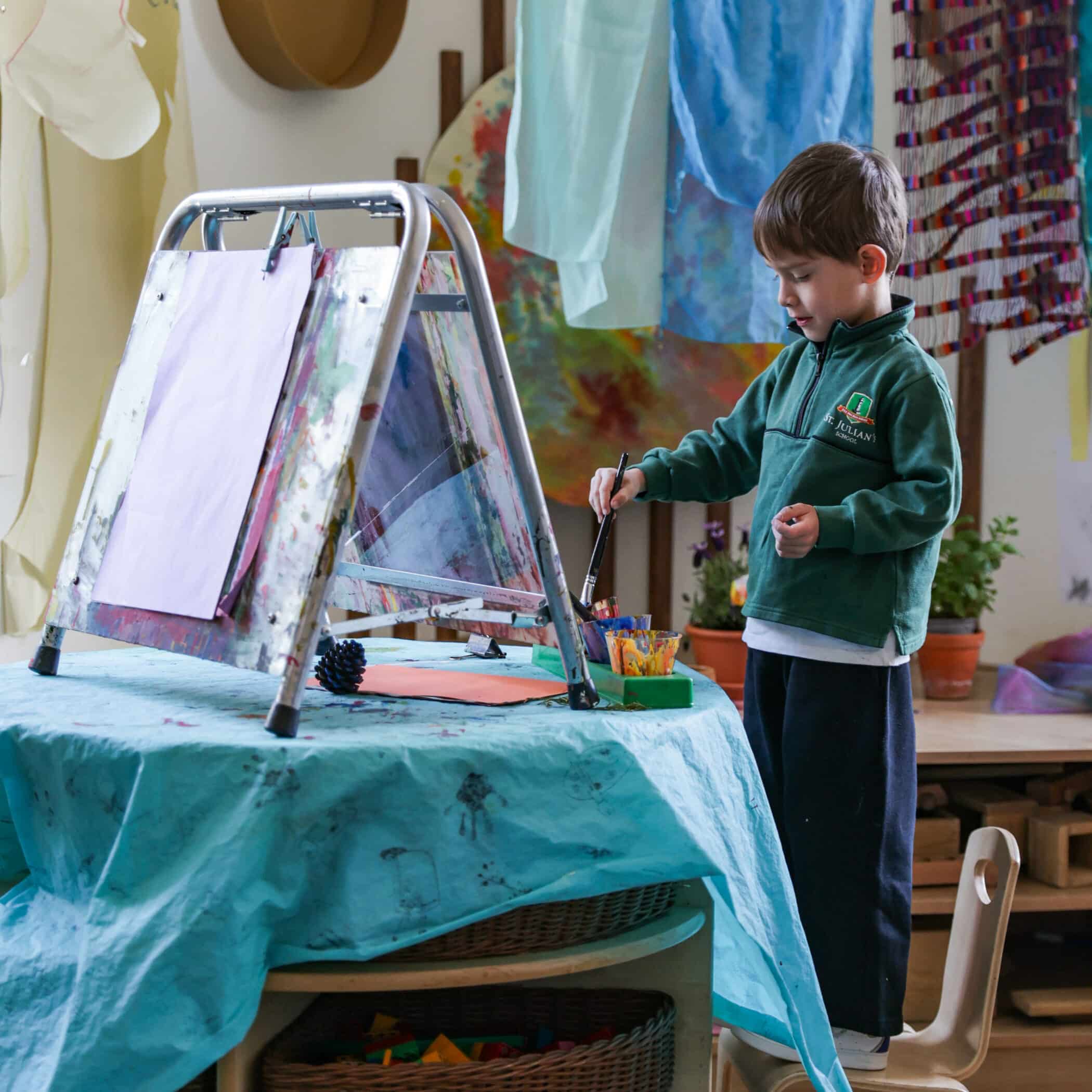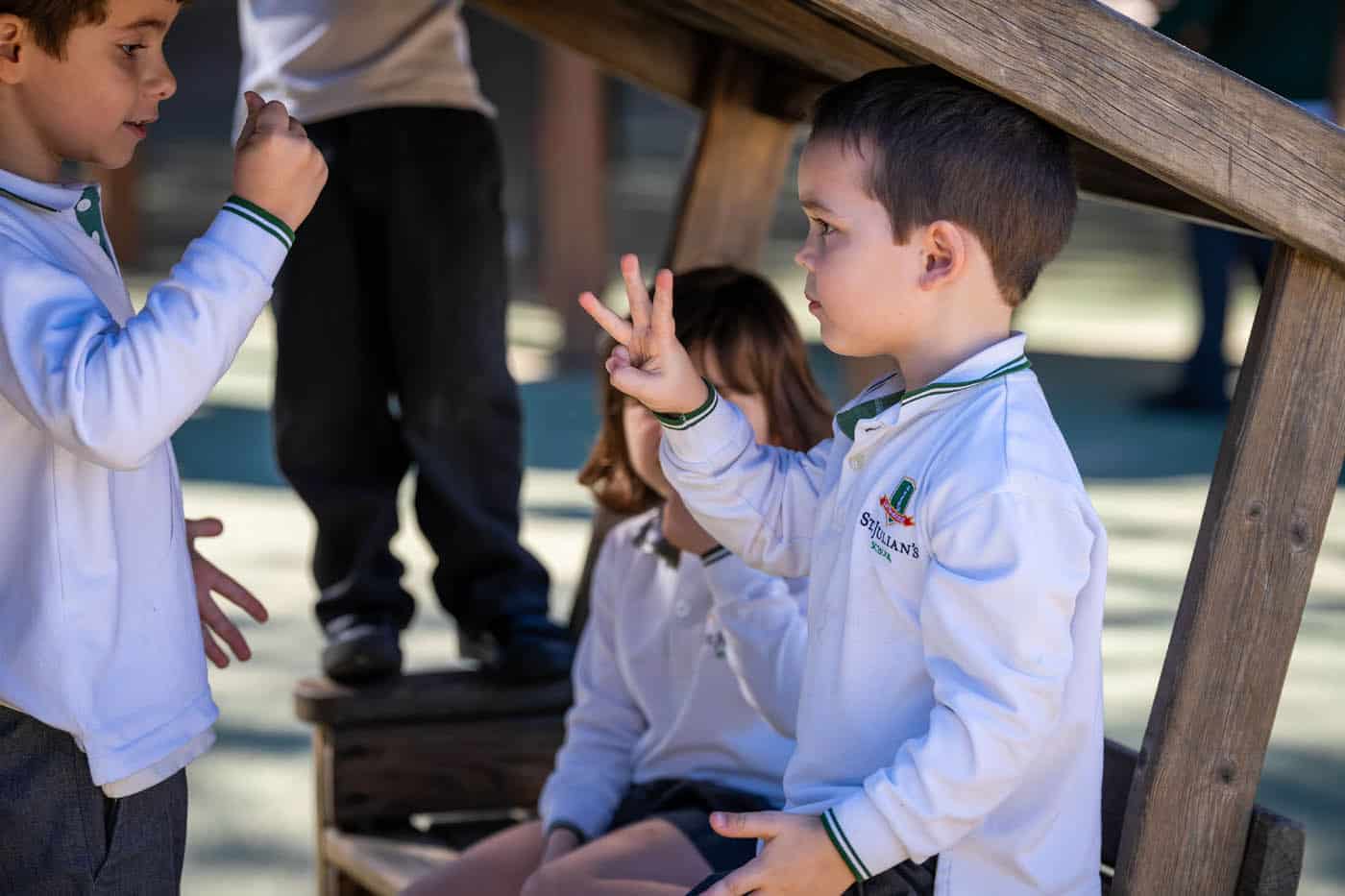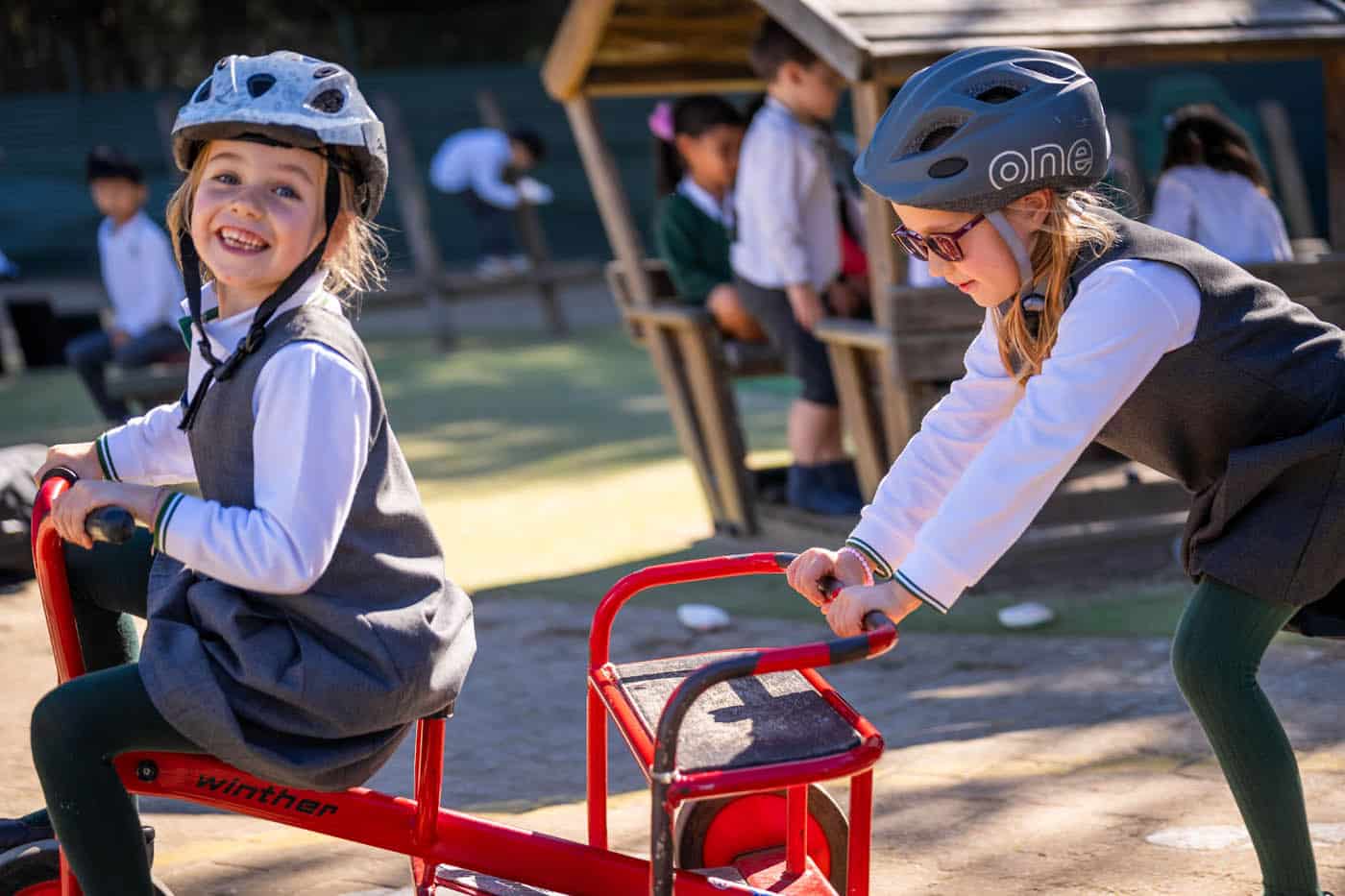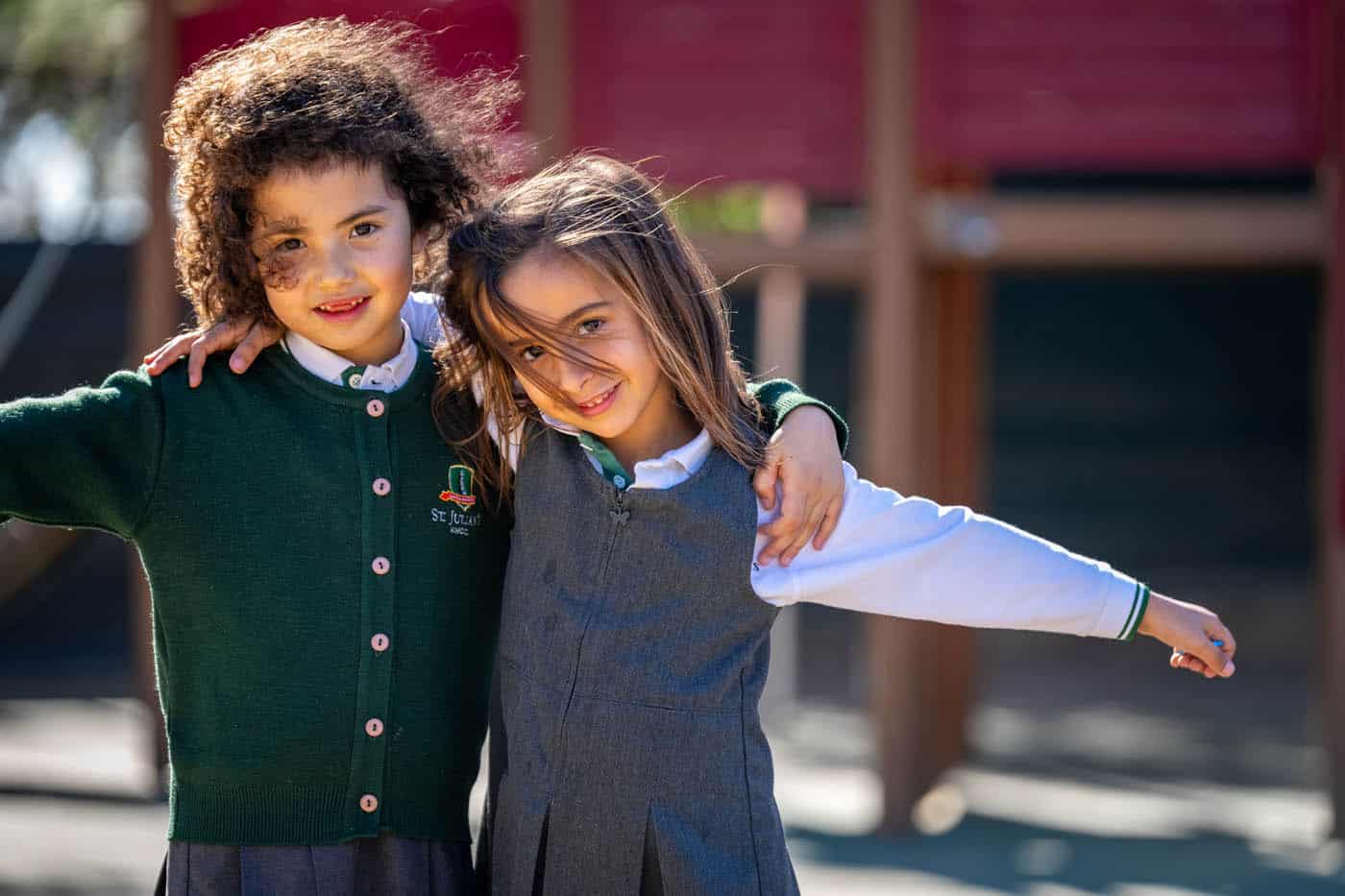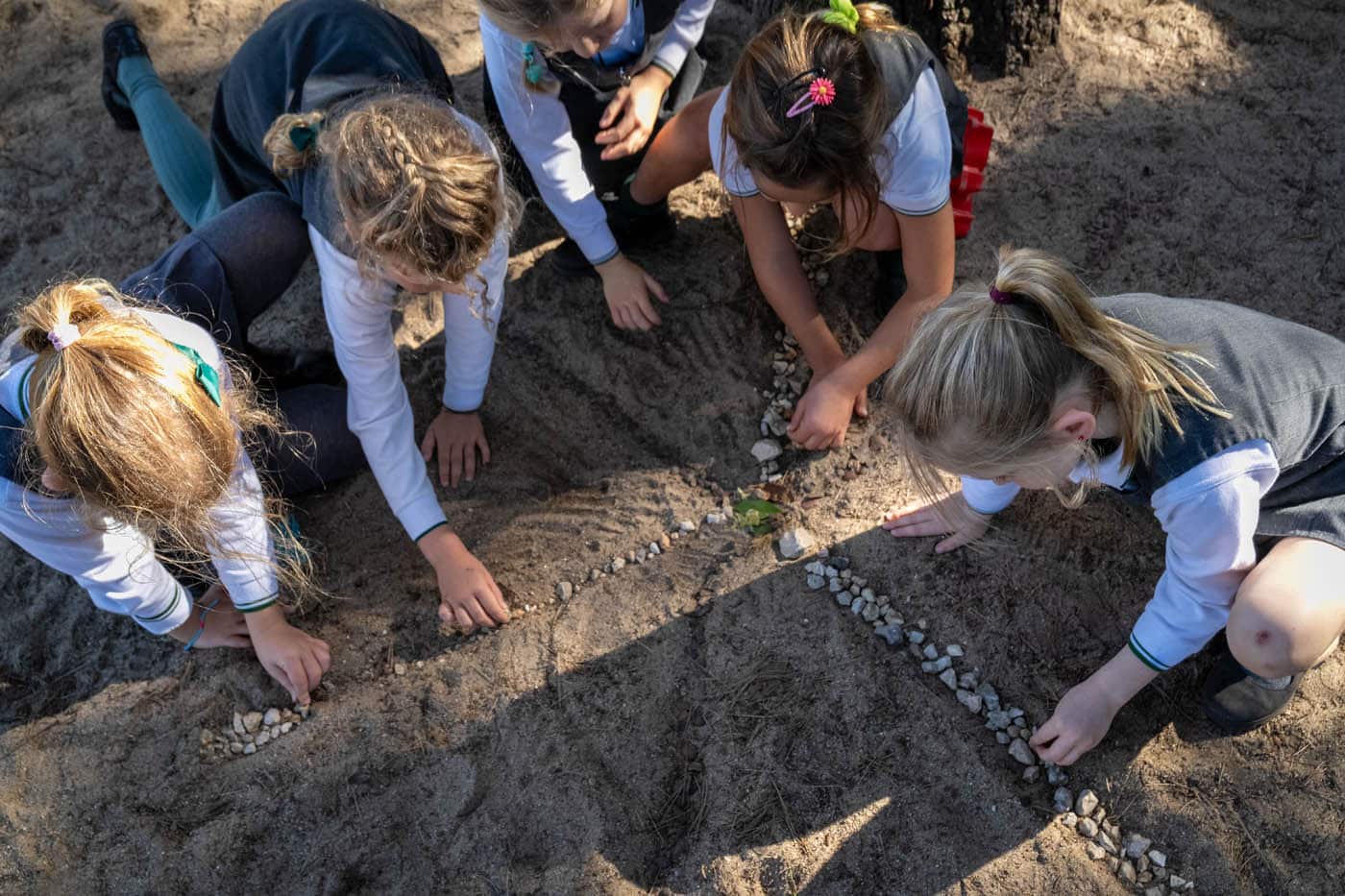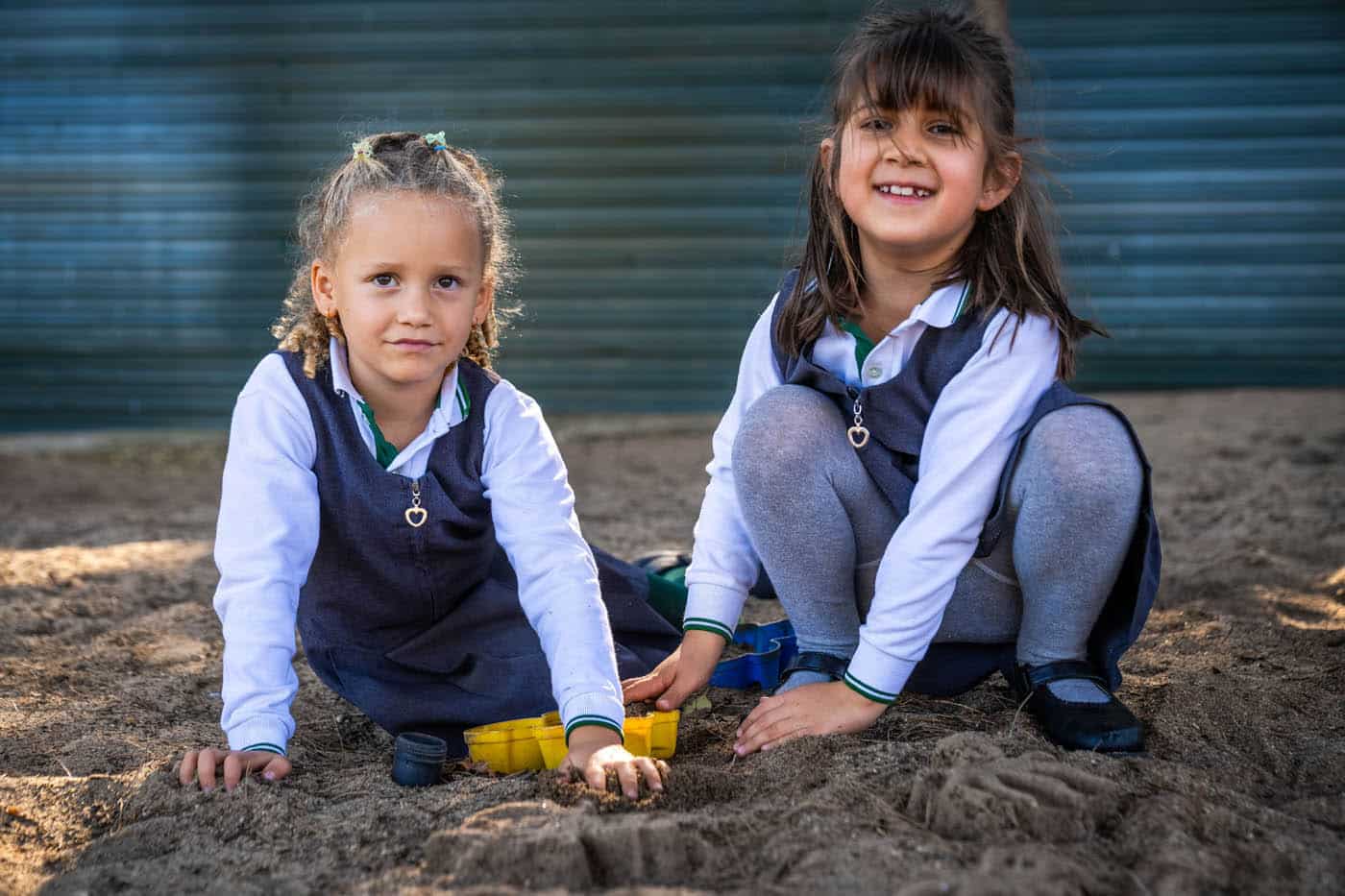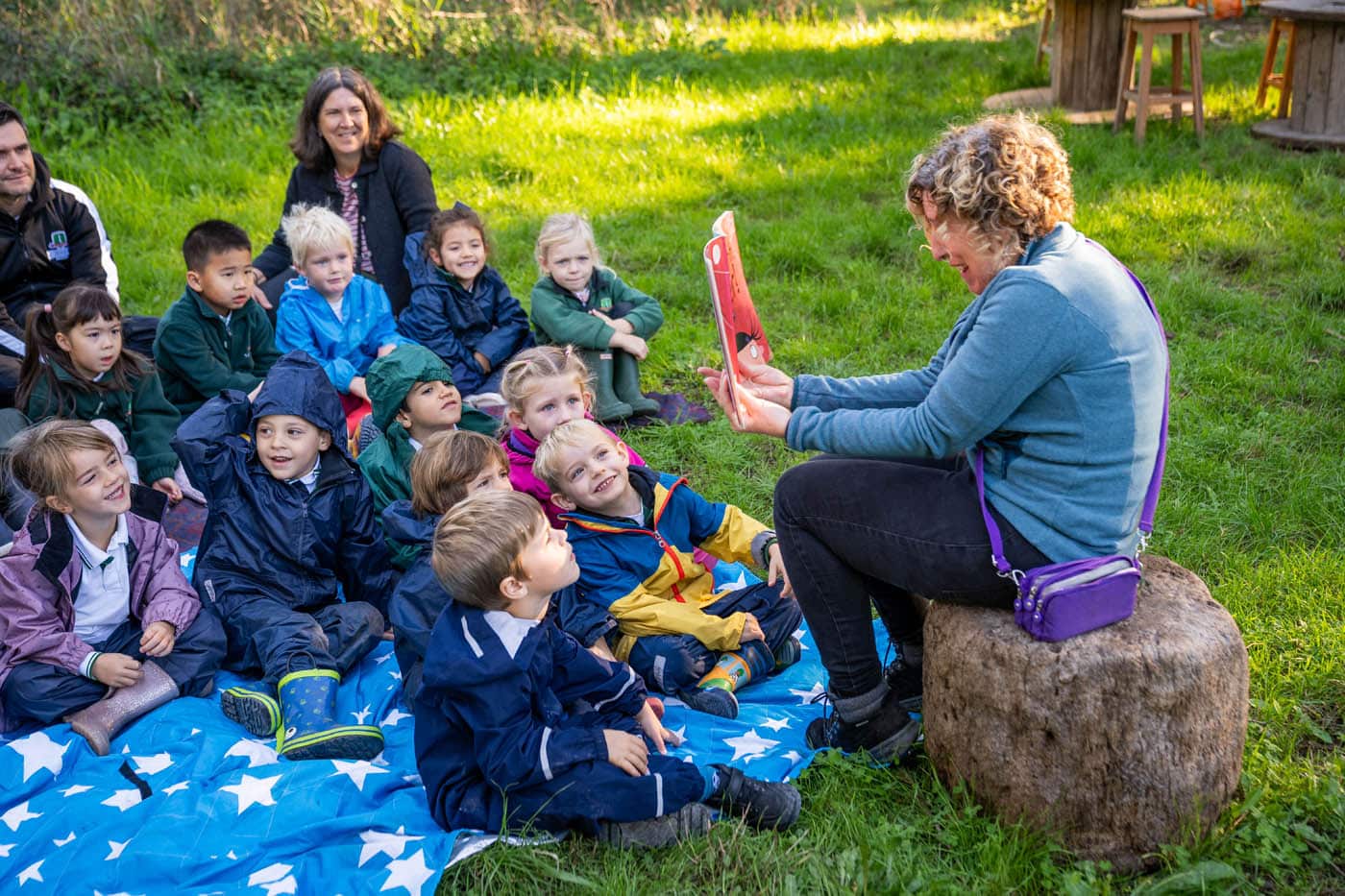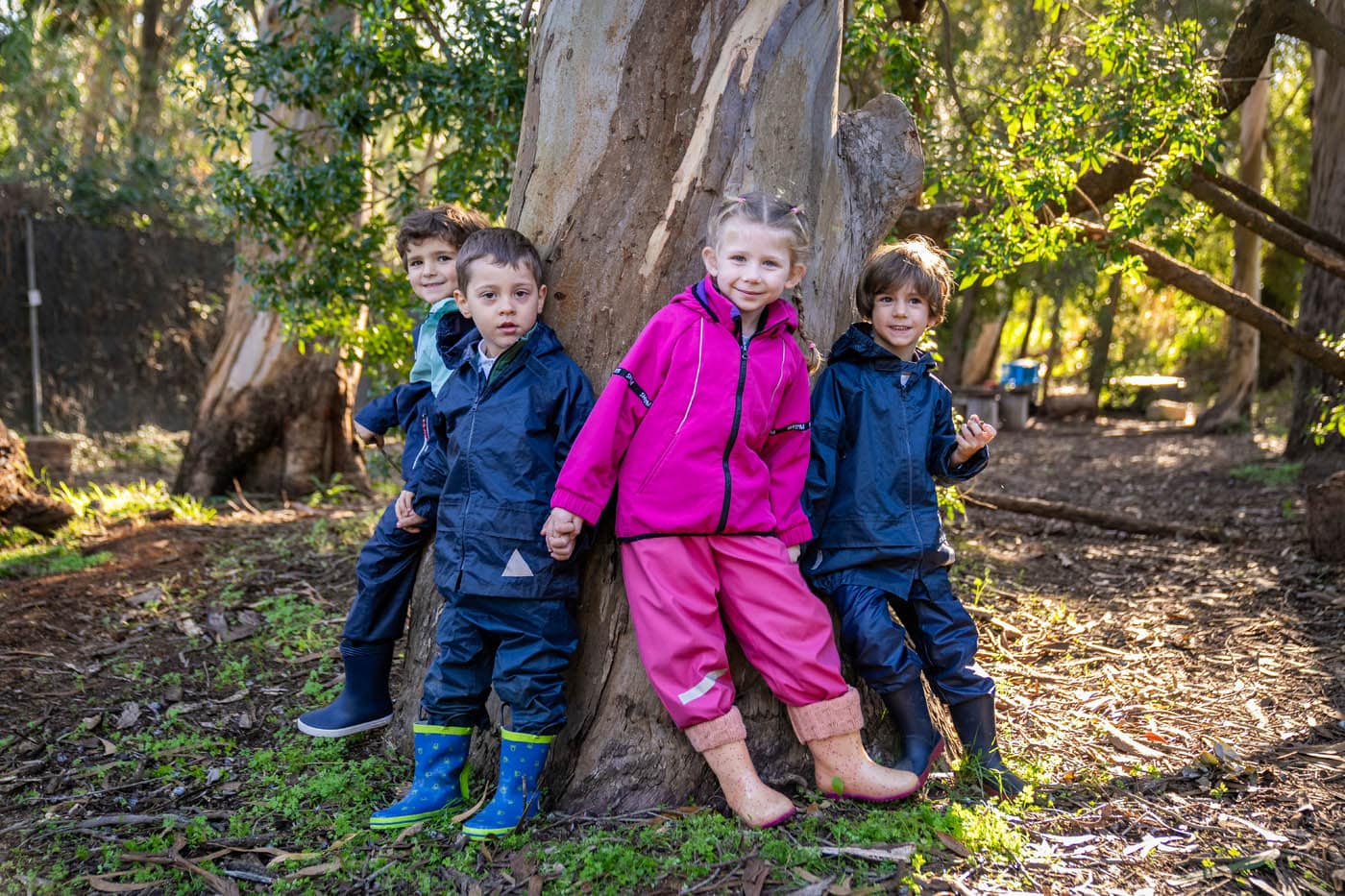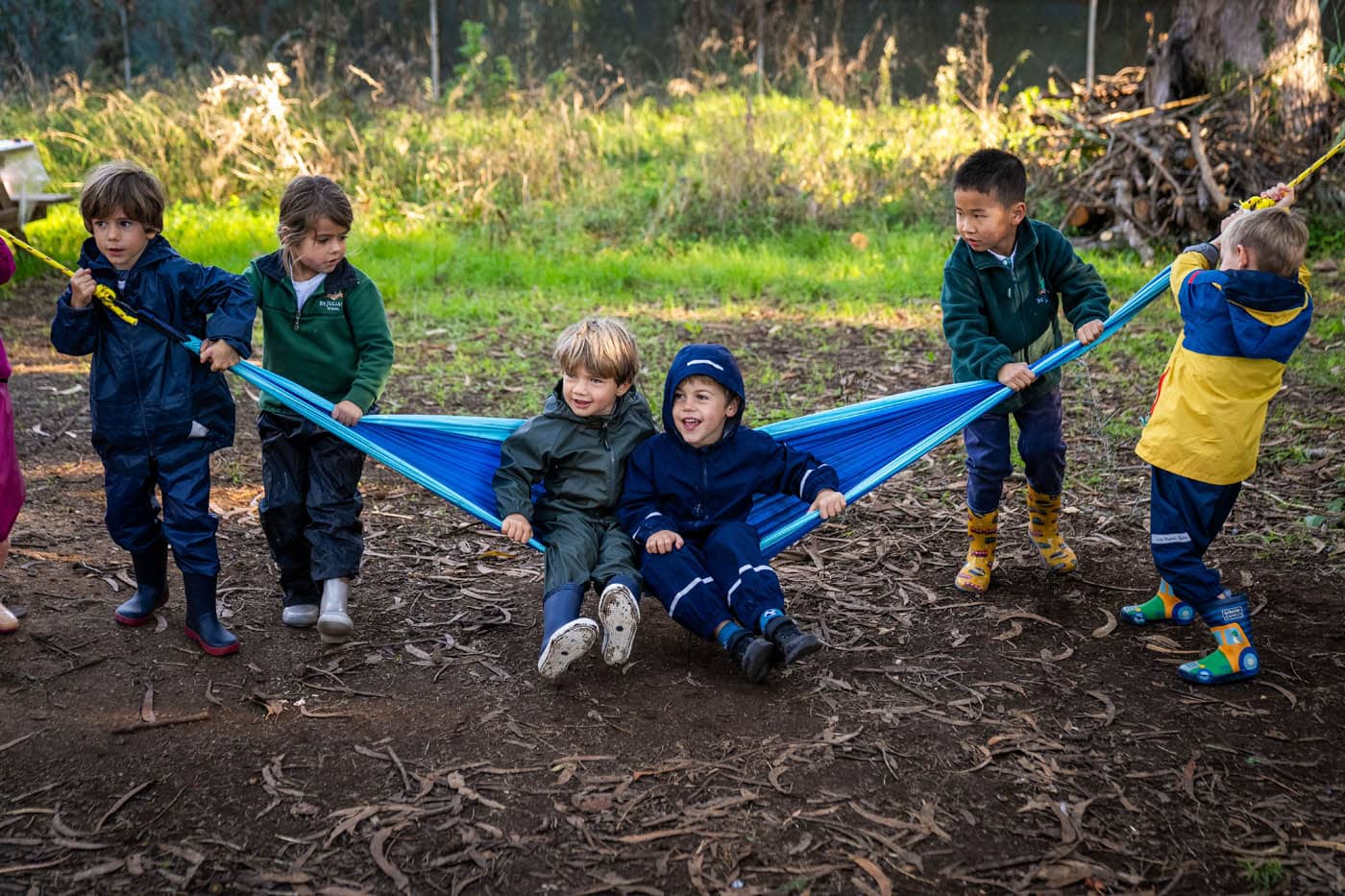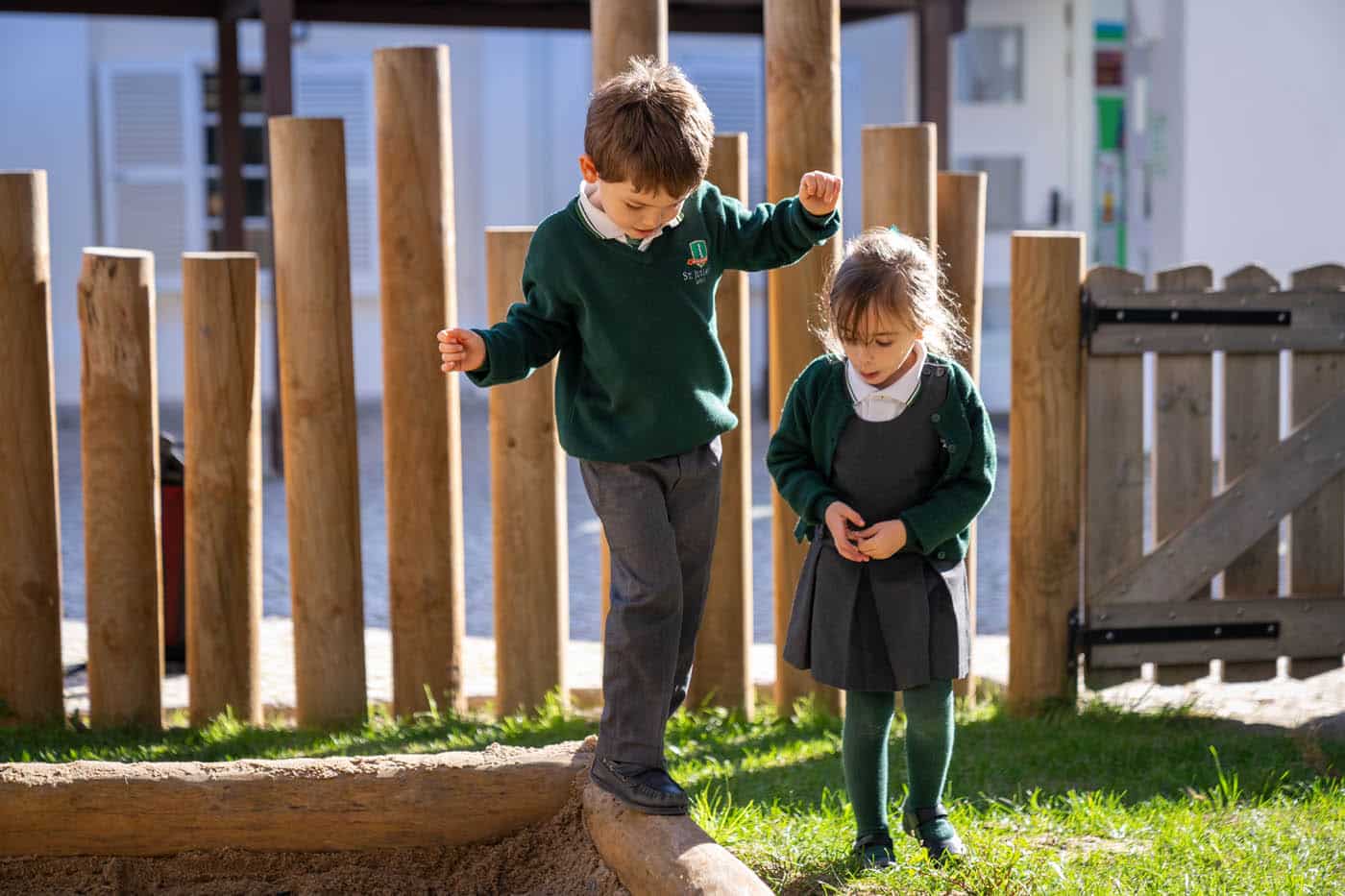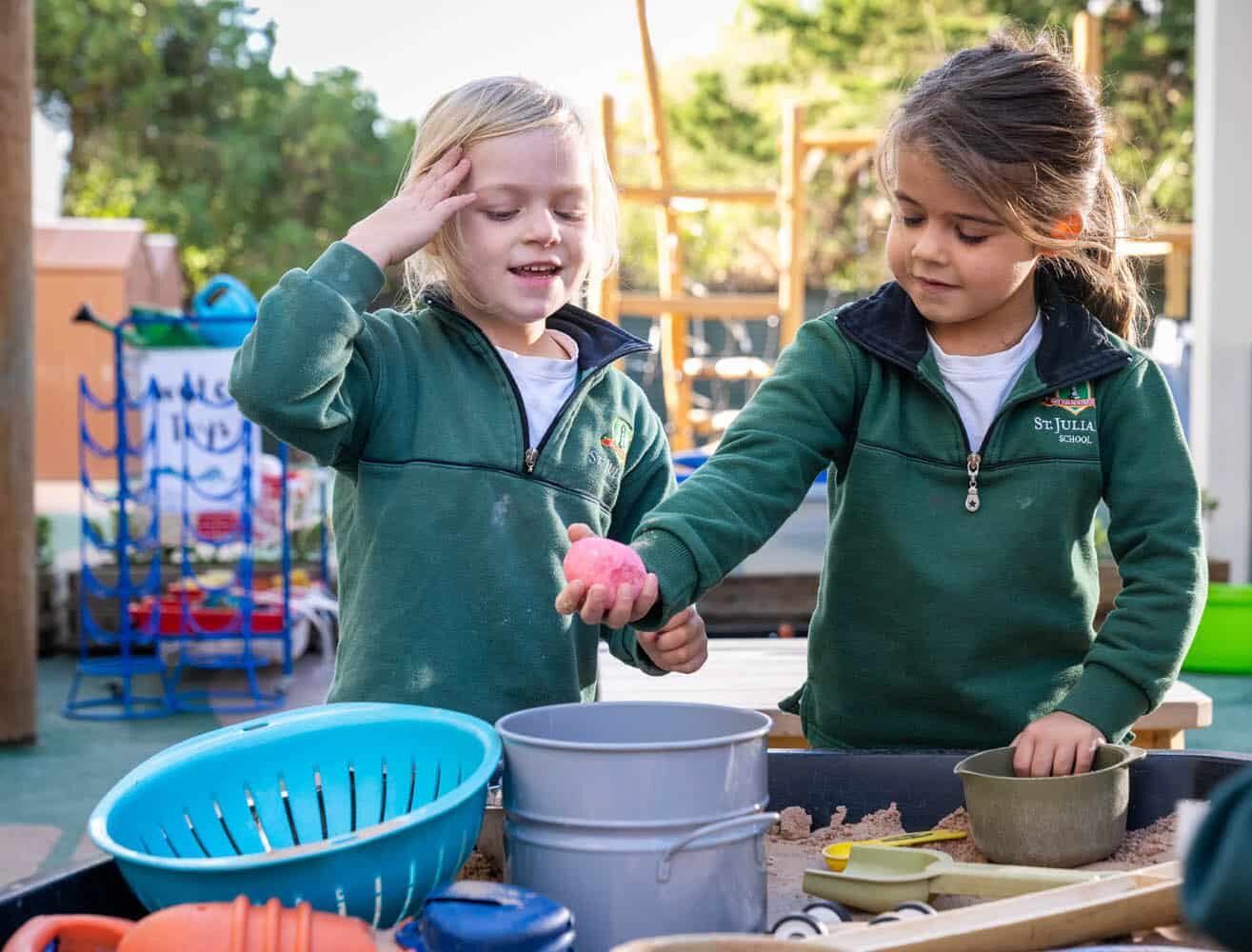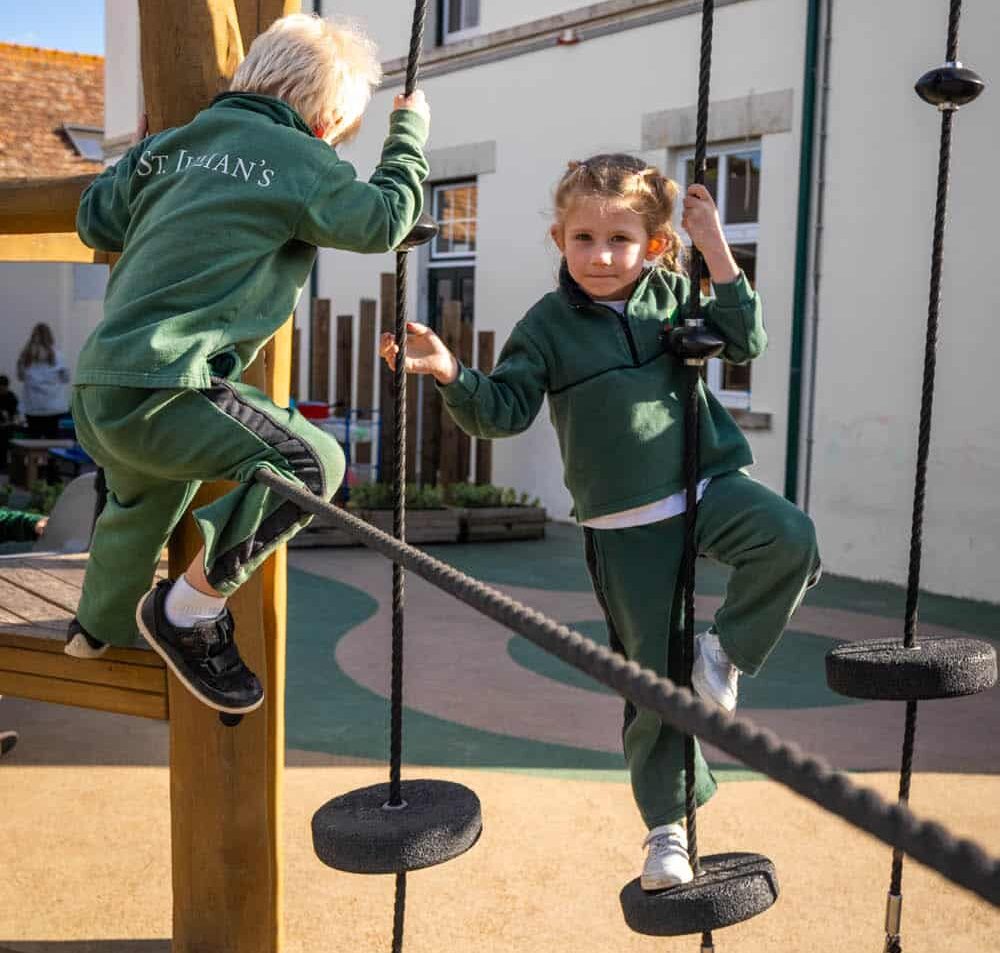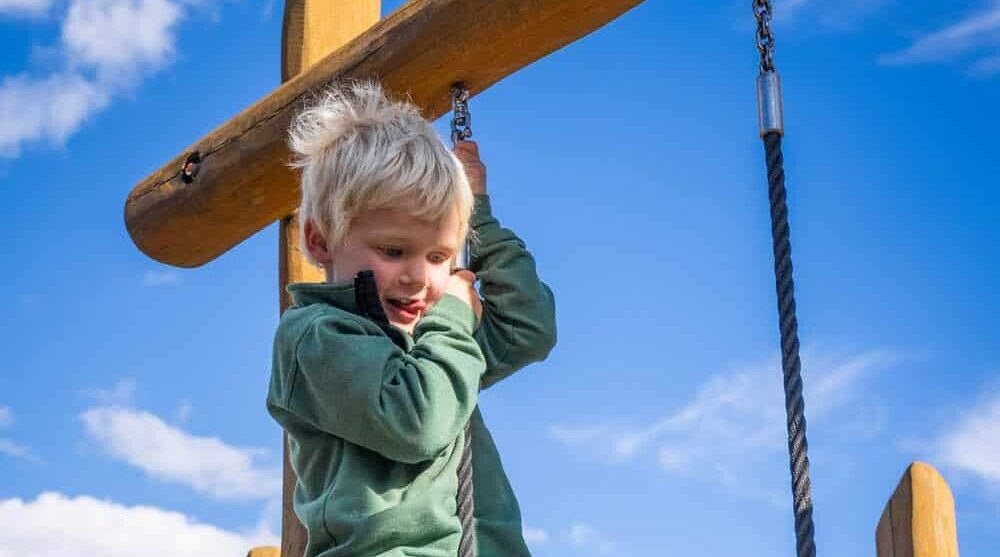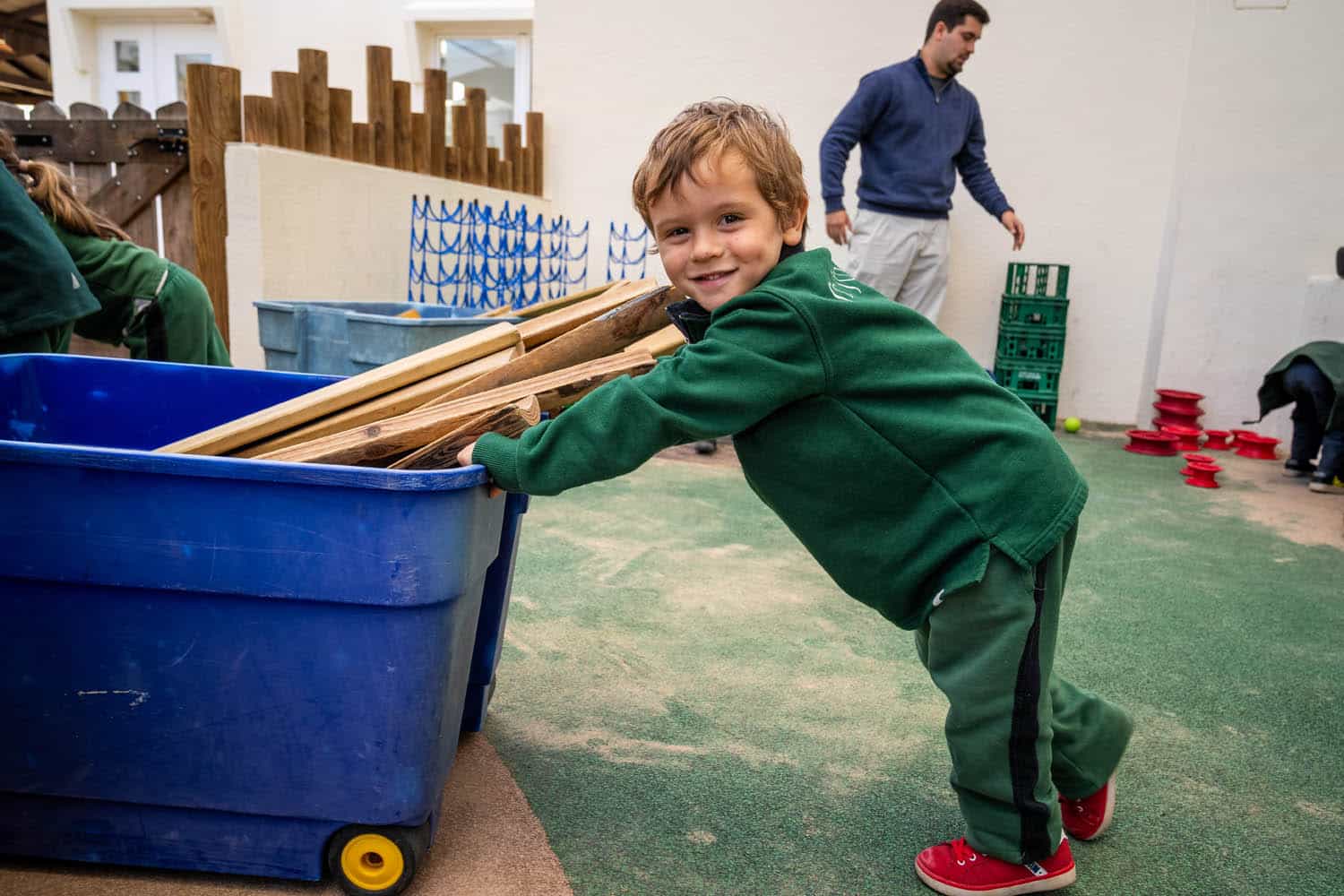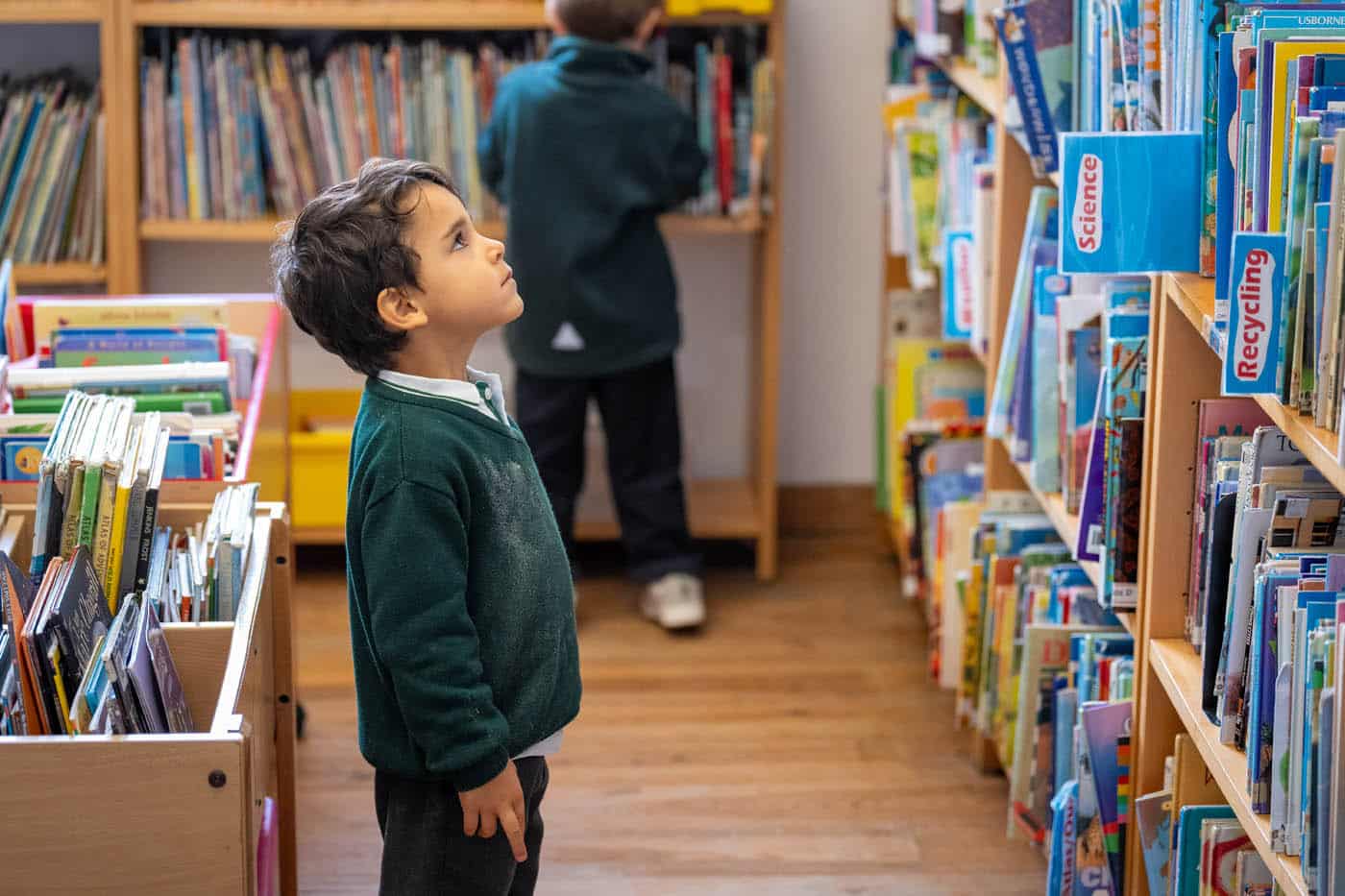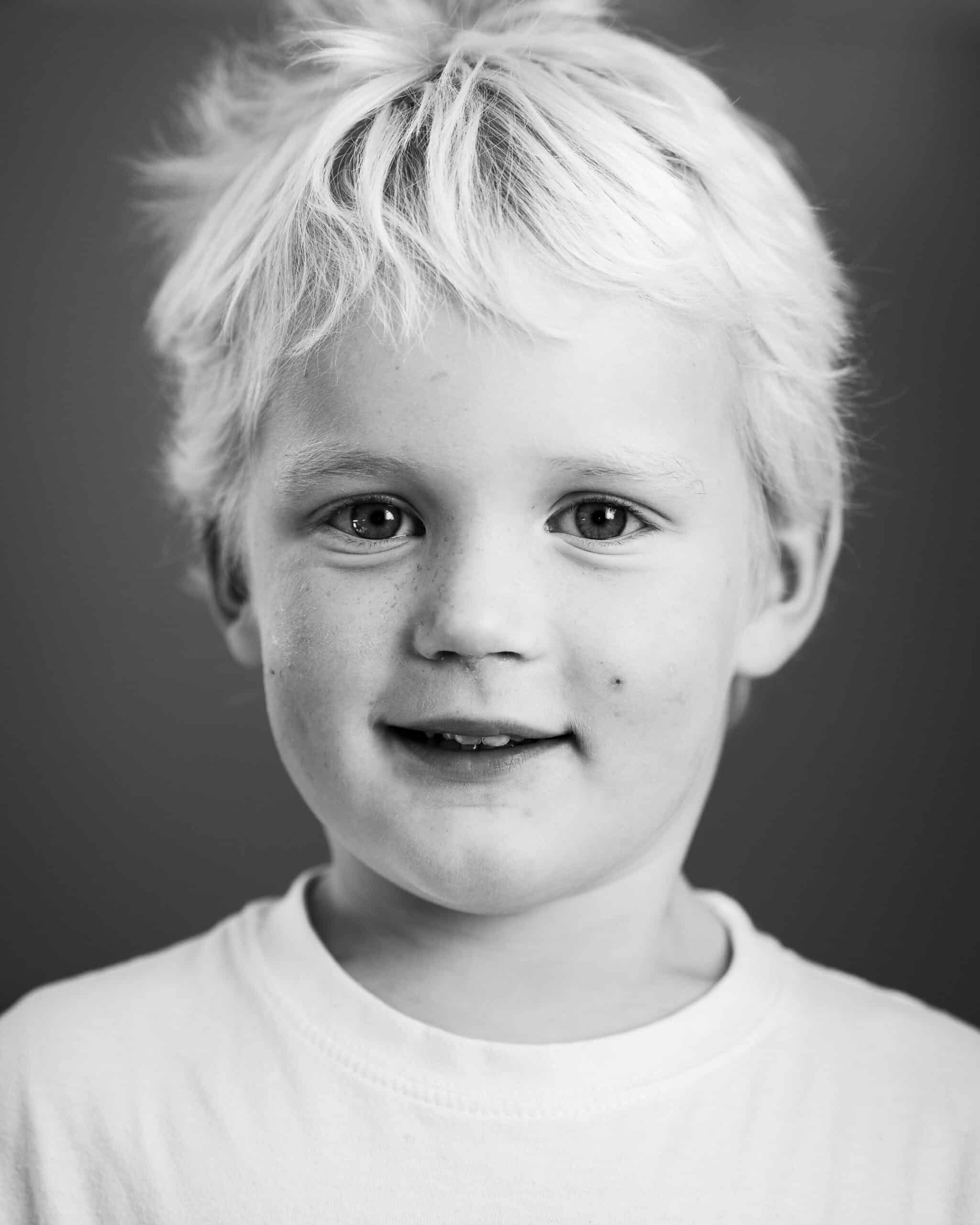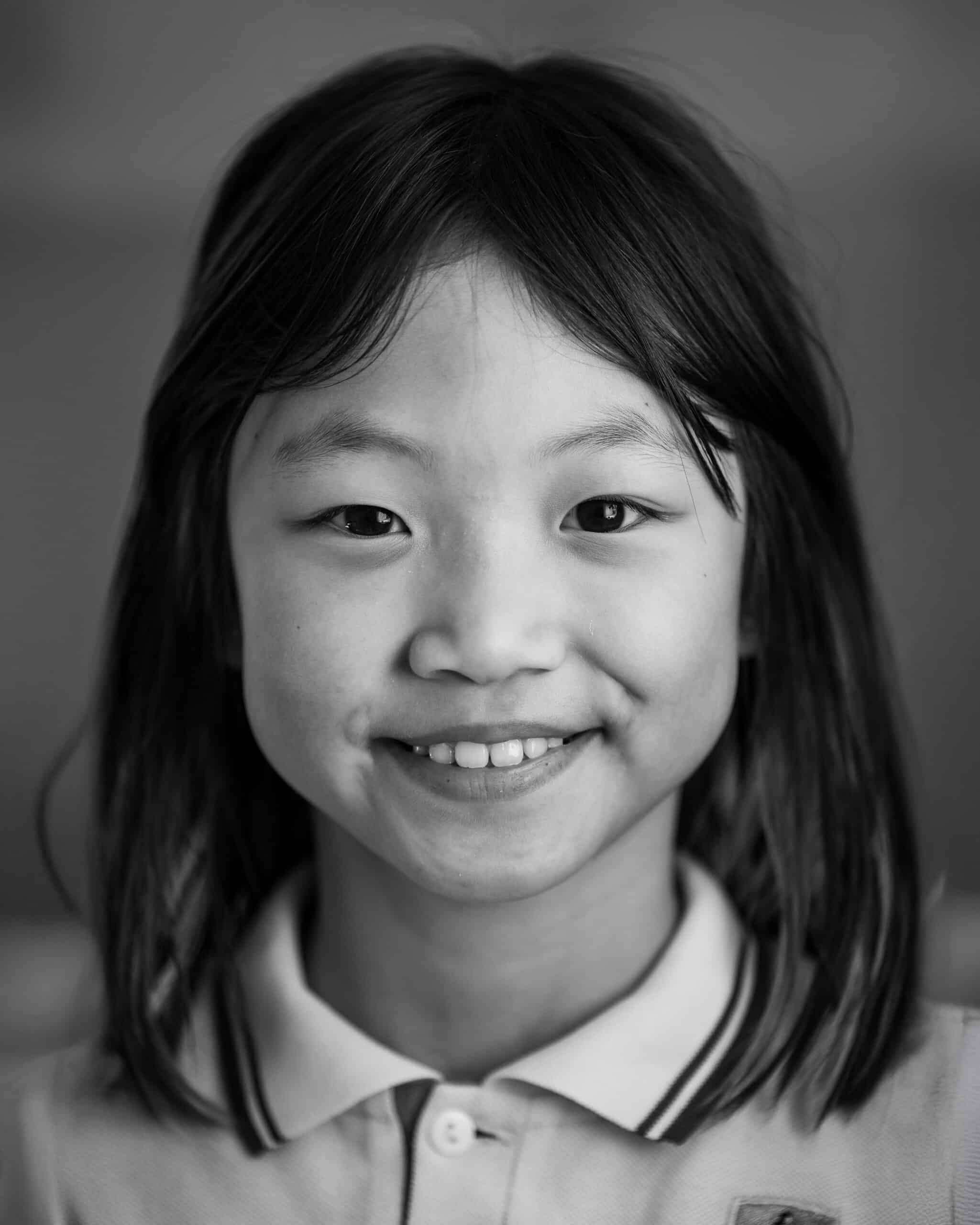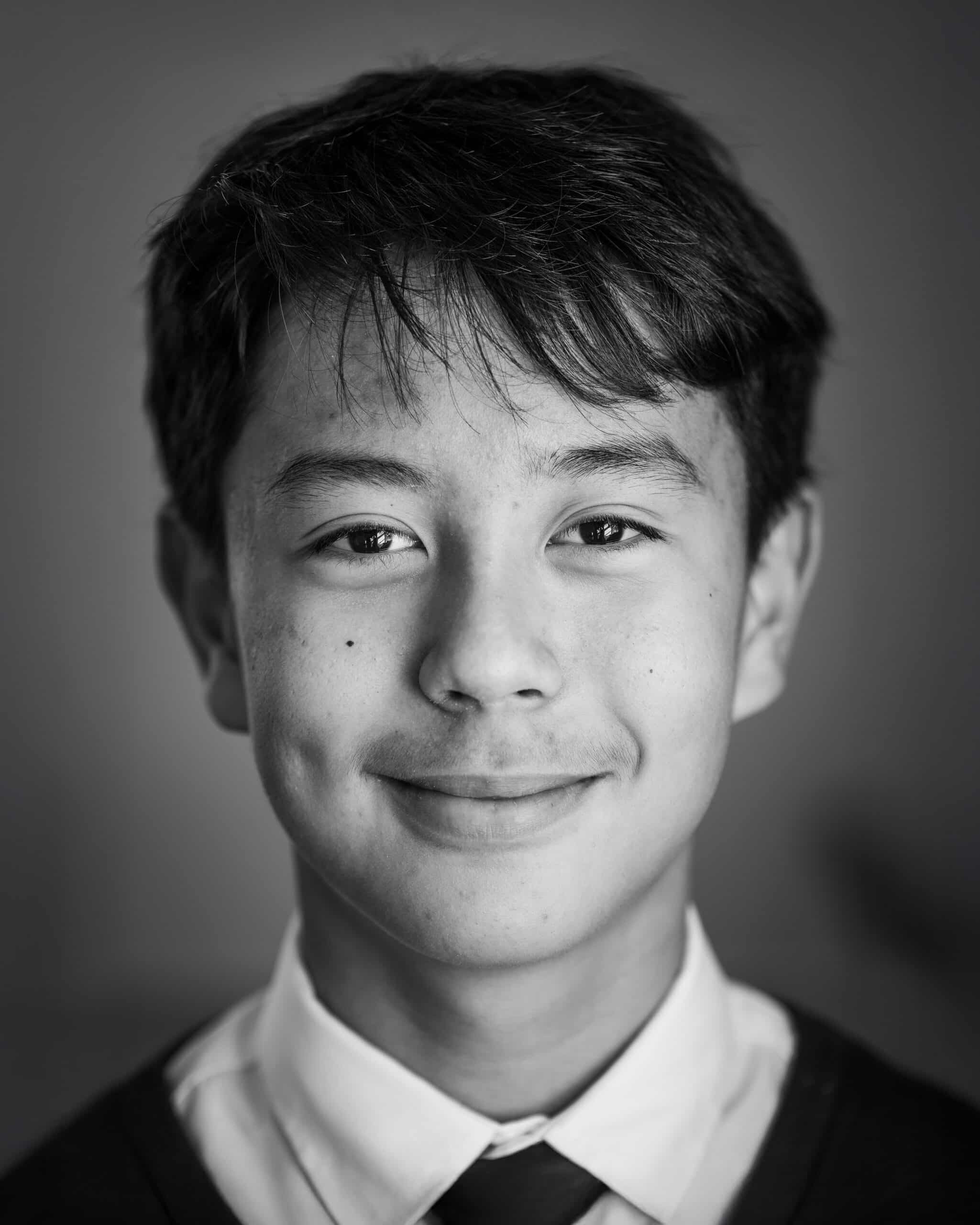Lifelong learning starts early
Over the years, children develop and acquire the skills, knowledge and understanding to make informed decisions as they grow. The subjects taught build a child’s broader understanding through cross-curricular learning.
Every child has a unique learning style and ability, so we individualise all learning. Below, you can discover more about how we have designed our curriculum, about daily life in the Pre-Prep, after-school clubs and our approach to safeguarding and wellbeing.
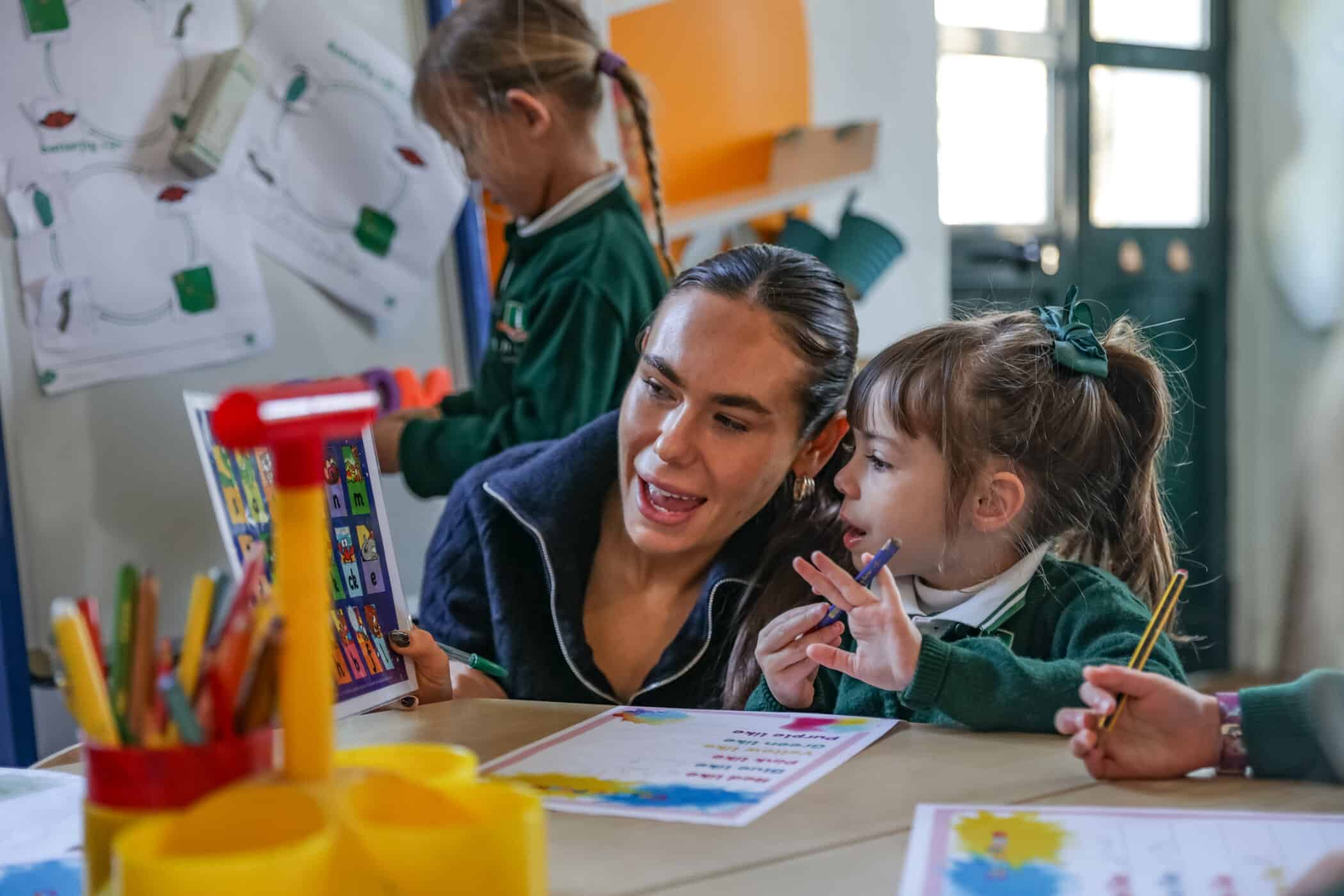
Pre-Prep Curriculum
The Pre-Prep Curriculum (Nursery and Reception) is built around England’s highly-regarded Early Years Foundation Stage (EYFS) framework. Our adapted play-based curriculum is designed to ignite a lifelong love of learning and help children develop key skills in a supportive and nurturing environment.
Explore our Pre-Prep School
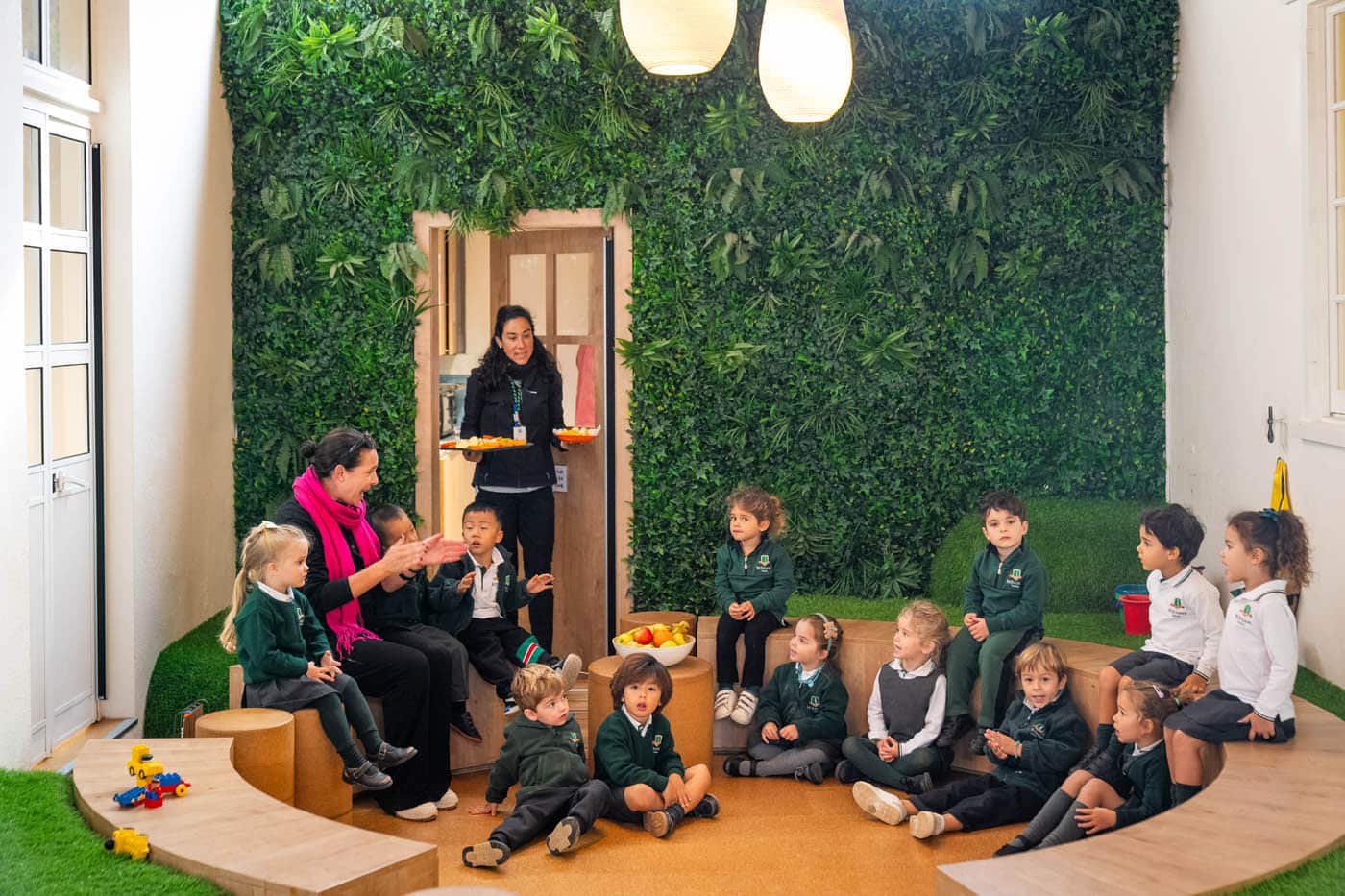
After School Clubs
In Reception, children can enjoy a wide range of opportunities to explore their interests and passions beyond the classroom. From arts and crafts to sports and music, our clubs offer engaging experiences that support physical, social and creative development. These positive early experiences spark long-term hobbies and talents that pupils can continue to develop throughout their school journey. For children in Nursery, joining after-school clubs. from the Spring Term, is decided on an individual basis.
Safeguarding & Wellbeing
At St. Julian’s we are committed to creating a safe, nurturing and inclusive environment for every child: your children’s safety and wellbeing are our top priorities.
We also promote safeguarding as everyone’s responsibility. All staff receive regular training and follow clear procedures to protect and support students.
